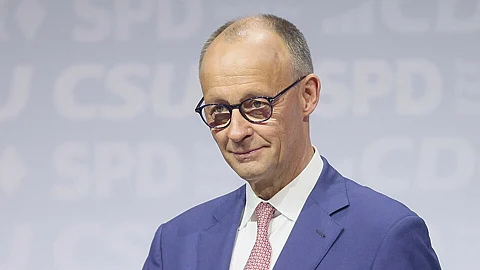

Germany’s newly inaugurated Chancellor Friedrich Merz stated on Tuesday that banning the far-right Alternative for Germany (AfD) would not diminish its growing support, emphasizing instead the need to address the underlying issues driving voters toward the party.
The remarks came after Germany’s domestic intelligence agency, the Federal Office for the Protection of the Constitution (BfV), officially designated the AfD as an "extremist" entity last Friday. The move has reignited debate over whether the government should pursue a legal ban against the anti-immigration, nationalist party.
In one of his first interviews since taking office, Merz told public broadcaster ZDF that his administration would carefully review the BfV’s findings before reaching its own conclusions. However, he cautioned against outlawing the party outright.
"You can’t ban 10 million AfD voters," said Merz, a conservative leader. "You have to engage with them factually and substantively. My goal is to restore trust in the political center so that people no longer feel compelled to vote for a party like the AfD."
The AfD secured second place in February’s federal election, marking the strongest performance by a far-right party in post-war Germany. Recent polls show its support has continued to rise, with the party even surpassing Merz’s Christian Democratic Union (CDU) in some surveys.
The BfV’s classification allows for increased surveillance of the AfD, now the largest opposition party in parliament. The party has condemned the decision as a "blow against democracy."
The AfD has found vocal supporters in the U.S., including allies of President Donald Trump. Last week, U.S. Secretary of State Marco Rubio criticized Germany’s labeling of the AfD as extremist, calling it "tyranny in disguise." Billionaire Elon Musk, who endorsed the party ahead of the February election, also warned against banning it.
Merz, who plans to speak with Trump by phone on Thursday, pushed back strongly against U.S. interference. "I would like to encourage the American government to largely stay out of German domestic politics," he said, dismissing recent U.S. statements as "absurd observations."
The chancellor, who has long-standing ties to the U.S., expressed disappointment that American officials appeared unable to distinguish between extremist factions and mainstream political parties. He also noted that he had refrained from intervening in U.S. elections.
Germany’s Foreign Ministry earlier defended the BfV’s decision, stating that the move was based on a "thorough and independent investigation to protect our constitution and the rule of law." The ministry added, "We have learned from our history that right-wing extremism must be stopped."
Despite ruling out formal cooperation with the AfD, Merz drew criticism in January for welcoming the party’s support on an anti-migration motion in parliament—a move seen as breaking a long-standing taboo on collaboration.
As tensions simmer between Berlin and Washington, Merz’s upcoming call with Trump will test whether the two leaders can navigate the diplomatic rift over Germany’s domestic political landscape.